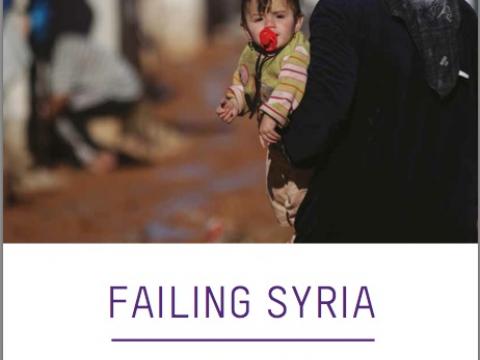Failing Syria
Download
The unanimous adoption of UN Security Council Resolution 2139 (UNSCR 2139) at the end of February 2014 brought with it much needed hope for people in Syria and across the Middle East.
In the resolution, the UN Security Council (UNSC) – the body responsible for international peace and security – called for an urgent increase in access to humanitarian aid in Syria and demanded that all parties immediately cease attacks against civilians, end arbitrary detention, kidnapping and torture, and lift sieges of populated areas.
In July and December 2014, the UNSC adopted two additional resolutions – 2165 and 2191 – which, among other things, authorized UN aid operations into Syria from neighbouring countries without requiring the consent of the Syrian government.
With these resolutions, the UNSC proved it could finally unite to prioritize the needs of civilians in Syria and to demand an end to their suffering. However, the resolutions, and the hope they provided, have rung hollow for Syrian civilians. They have been ignored or undermined by the parties to the conflict, other UN member states, and even by members of the UNSC itself.
The spiralling catastrophe in Syria is a stain on the conscience of the international community. The resolutions passed by the UNSC provide a framework to end the suffering in the short and longer term, and the parties to the conflict are under an obligation to implement them. While the UNSC has the legal authority to demand these changes, its members and their allies have the political, diplomatic and financial influence, and the ability, to ensure these changes actually happen.
Without action by individual governments, the demands within these resolutions remain little more than words on a page.
They can no longer be ignored.
In this report, World Vision joins with 20 other humanitarian and human rights organisations to give the UN Security Council a 'fail grade' on Syria.



